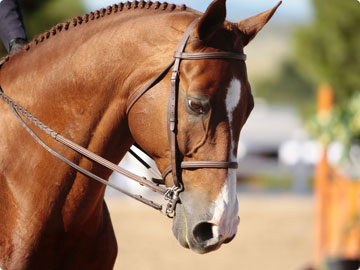Boarding costs, a realistic look at what you pay for
The cost to properly take care of a horse is more than the average boarder realizes. If you have never lived with your horse and cared for it daily you really can’t have an accurate understanding of how much time and money it takes.

You can expect to spend up to 30-minutes per horse each morning. A great caregiver will have a strategic and efficient morning routine that will cater to the needs of the horses. A typical morning consists of a general walk thru the barn and greets each horse, conduct a health inspection and if you don’t have to tend to an overnight injury then you would prepare specially customized grain concoctions with supplements for each horse. A delivery system will be in place of the order of who gets grain feed. This is dependent on learning the behavior of each horse. Some are impatient and paw at the ground, get vocal, pace, bang upon the gates. A caregiver who understands this behavior will elect to make feeding a teachable event. So it may take longer to get the food out because they will not want to reward this behavior and will have to wait until a horse stops what he is doing so he can be rewarded with the grain. Once the grain is delivered then a caregiver may do some other chores to give the horses some time to eat. This may include feeding the barn cat and the resident dogs. Once the grain is eaten another strategic system is used to decide who gets turned out with who, and in what order. This typically involves opening a series of gates and haltering each horse, leading them to their assigned pasture and releasing them. A caregiver that truly cares about your equine bestie will also use this as a teachable moment because they handle any issues along the way and they will always take the time to be sure he is released correctly and does not bolt when his halter is removed. Not all horses are created equally. Quality caregivers learn the behavior and personalities of every horse in their care and they must adjust their teaching moments to fit the individual needs of every horse. This is also time for fly spray, and blanketing if needed. Read More
Ten Traits Every Horse Inherits
This video discusses the ten traits every horse inherits. Understanding these inbred characteristics will unlock the secrets of horse behavior.
1. The Secret of Flight: The horse in its wild state depends upon flight as its primary survival behavior. The horse’s natural habitat is grasslands, prairie or steppes. Its primary enemies in nature are the large predators, particularly those of the cat and dog family, such as lions and wolves. Read More
Stronger As A Team
Almost all horse lovers share one thing in common: We dream of riding like Annie Oakley, galloping over rolling hills, or dashing through forests on our fearless mounts in perfect harmony with our horse and the world. Unfortunately, these dreams sometimes go unrealized, instead of turning into nightmares. As our horses behave instinctively like prey animals, we lose confidence, desire, and sadly sometimes our health in pursuit of our dreams. This can be the result of failing to build a trusting relationship that is the bedrock on which the bond between you and your horse rests. Only a horse that trusts its rider can make the dream a reality. Read More
© Copyright 2019-2026. All Rights Reserved by Sisterhood Stables, L.L.C.

